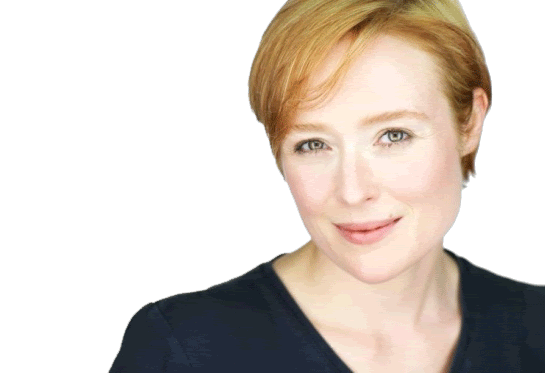Matthey Murray of Talkin' Broadway gives a rave:
There are few greater pleasures in living a theatre-full life than expecting to be drowned by a towering show and instead finding yourself washed away on a tide of exciting, thought-provoking entertainment that nonetheless eventually deposits you safely on shore. Or should that be the coast?
Let's go with that, if only for the moment. For tribute must be paid to The Coast of Utopia, Tom Stoppard's epic trilogy of plays that just got its official start with the opening of its first chapter, Voyage. Lincoln Center Theater is occupying itself with this mammoth opus for the better part of the season, and if you want to step foot in the Vivian Beaumont between now and March, the only way to do so is by way of 19th century Russia. Believe it or not, this is less threatening - and more rewarding - than it sounds.
Despite Stoppard's not entirely undeserved reputation for writing dense plays on esoteric subjects ranging from philosophy and chaos theory to literature and England's occupation of India, Voyage is some of the most instantly accessible Stoppard Broadway has seen in years. Advanced word from London, where The Coast of Utopia premiered a few years back, was that the work was compelling and brilliantly written but stuffy and perhaps even self-absorbed. Under Jack O'Brien's direction here, Voyage doesn't smolder or steam - it crackles and blazes. [...]
Michael Kuchwara for AP is also positive:
"Voyage" is a tantalizing curtain raiser, a taste, one hopes, of what's to come.
The play is the opening salvo of Tom Stoppard's "The Coast of Utopia," a nine-hour trilogy that is epic in its sweep, yet, judging from this first episode, surprisingly personal, intimate even, in the emotions that flow through this passionate piece of theater. [...]
One of the strange things about "Voyage" is that the women almost seem like an afterthought. It takes a while to differentiate among the four Bakunin daughters, portrayed by
Jennifer Ehle, Martha Plimpton, Kellie Overbey and Annie Purcell. Their mother (an underutilized Amy Irving) also comes across as a minor accessory. Eventually, Ehle as the most tremulous of the daughters, become something more than a cipher as she pines for the elusive Stankevich.
If Stoppard's language is dense (at least for the men), the production design — sets, Bob Crowley and Scott Pask; costumes, Catherine Zuber; lighting, Brian MacDevitt — is buoyant and staggeringly beautiful. There are some memorable images, particularly an endless line of peasants spread across the wide Beaumont stage, and a wintery Russian palace, looking as if it were constructed out of ice.
Despite the many changes of seasons in "Voyage" and the liveliness of the talk, there is an autumnal, almost Chekhovian feeling to the proceedings. It's the beginning of the passing of the old order although no one seems to realize what exactly is happening. Yet it's this anticipation of the unknown — and the willingness to confront it — that makes "Voyage" so theatrically vibrant. [...]
Word from All That Chat is that there's a review of Voyage in today's New York magazine by Jeremy McCarter, not yet online.
On the blogs, Ryan describes the striking opening sequence of Voyage and is positive about the show:
[...] I said to Craigy that what I really liked about it was how it's so thoughtful and philosophical, but it tempers that just perfectly with enough humor that it never felt too heavy. Ethan Hawke is in it. I don't really like him, but I'll have to say he was really not too bad at all. Martha Plimpton is in it, and she was great, but her part wasn't too terribly huge. Amy Irving, too. [...]
Johann also recommends it. Jesse Wilbur of if:book writes a thoughtful rave:
[...] Prior to seeing the play I was concerned that the first act of a trilogy would have a sense of being open in the way a cliffhanger is open. I was watching it with two visitors from out of town, and it is unlikely they'll be able to return to see Shipwrecked or Salvage. I didn't want them to leave with a sense of the work being unfinished. While the action is indeed open-ended, there is a very strong sense of closure at the end of the second act. It is more portentous than unfinished: there is war and exile and a nobleman at the end of his life, contemplating the loss of his son and the dissolution of his estate. It is a nod to the great Russian novels, but with the unfussy delivery that I recognize from other Stoppard plays.
One of the things I kept noticing during the performance was the presence of books. When Stankevich passed a book to Bakunin, I felt the transfer of knowledge. The play expresses ideal of what we think about at the Institute: books as vehicles for big ideas. There is a treatise waiting to be written about the view of literature defining a nation (explosively presented in a monologue from Belinsky). And there is, throughout, a very powerful sense that the printed word is vastly important. But there is also that sense of impending loss, which makes us question where we are today. Do we live in a world where idealism is lost, and where the gilt-edged books filled with new philosophies are no longer valued? Or is it the opposite? Do we live in a world where the book is doing better than ever, and idealism takes so many forms that it is unrecognizable?
smore2 from ATC is harder to please however, finding little to praise in the play.
As for random bits and pieces, Playbill's announcement of the opening includes a photo of Bakunins Sr and Jr. At Musings from the Lehigh Valley, there's a response to the NY Times profile on Tom Stoppard, and BroadwayWorld forumers speculate on the chances of Utopia being extended beyond March.




No comments:
Post a Comment